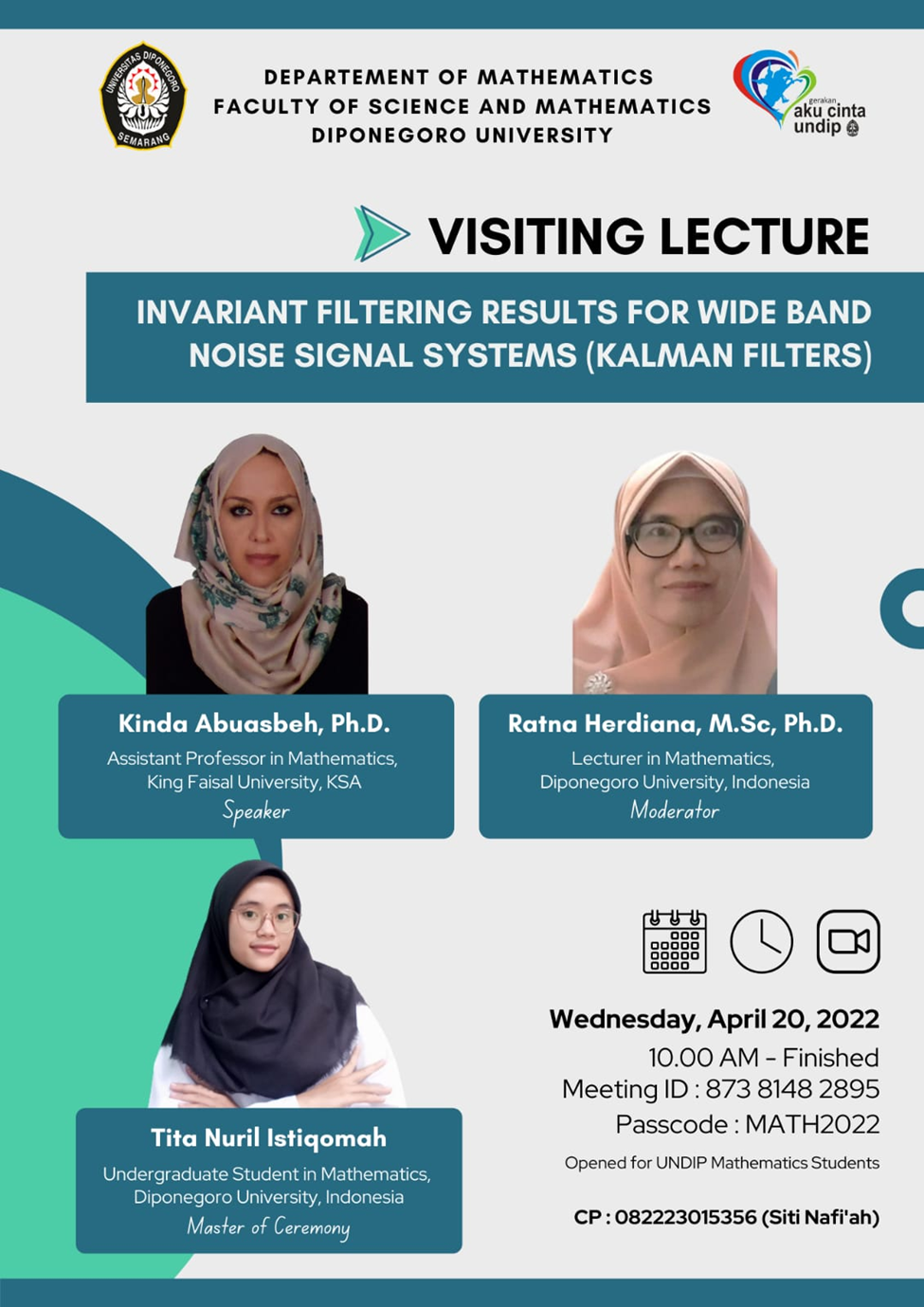Author: Dr. Moch. Fandi Ansori, M.Si. (Web Management Team of Departement of Mathematics at Diponegoro University)
Semarang, April 20th 2022 – Visiting lectures are a program at Diponegoro University (Undip) that brings in lecturers or researchers from around the world to share their knowledge with the Undip academic community. This time, the Mathematics Department of Undip welcomed Kinda Abuasbeh, PhD, a lecturer from the Department of Mathematics and Statistics, College of Science, King Faisal University, Saudi Arabia, to participate in the visiting lecture activity. This online event was attended by various mathematics lecturers as well as undergraduate and master’s level students. Ratna Herdiana, PhD, a lecturer at the Undip Mathematics department, served as the event’s moderator. Dr. Ratna worked on the same campus as Dr. Kinda in Saudi Arabia. Tita Nuril Istiqomah, a mathematics undergraduate student at Undip, serves as the master of ceremony.
According to Dr. Kinda, Kalman filtering is a powerful estimating approach. One disadvantage is that the white or colored nature of the noise conflicts with the Kalman filtering model. Real noise, on the other hand, is rarely white or colored. They are primarily broadband. In this scenario, Kalman’s white or color noise filtering makes a compromise to adequacy. This spurred system scientists to create mathematical estimating methods for broadband noise-damaged systems. In applications, wideband noise is identified by the autocovariance function and its cross-covariance, making it impossible to represent it individually. As a result, it is critical to construct an estimation approach that does not rely on broadband noise classes and instead depends on autocovariance and unique covariance functions. This is known as an invariant outcome. Dr. Kinda demonstrated a complete set of invariant equations for Kalman-type filters for detecting systems of linear signals damaged by correlated wideband noise in his presentation. Only numerical methods need to be developed for these filters to be used in applications. Dr. Kinda also outlines possible applications for the suggested filters.
Dr. Kinda proved that wideband noise-driven system filtering leads to a number of issues. Many wideband noise processes have this autocovariance function given the autocovariance function. Each one produces its own best guess. The issue is deciding which of these best estimations to use. In control theory, a similar problem emerges as the optimal selection of one of the optimal controls. Dr. Kinda investigates this problem for a wide range of broadband noise.

